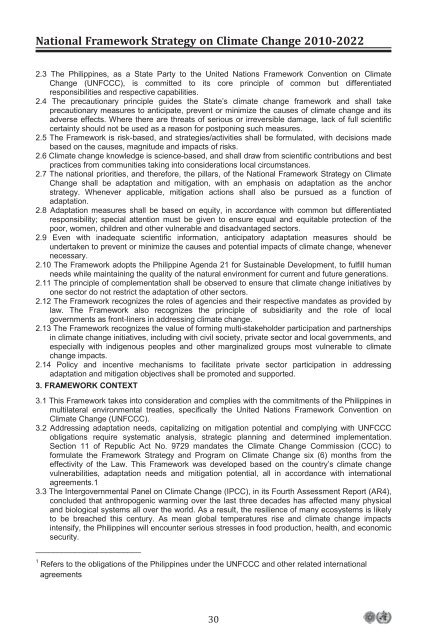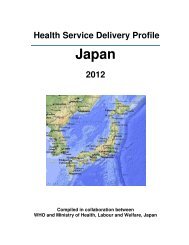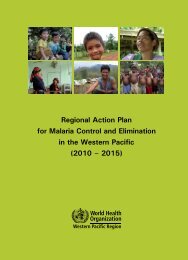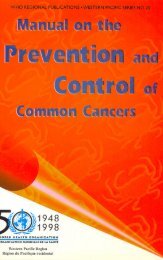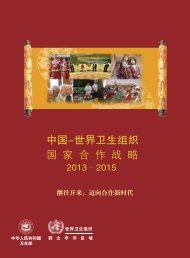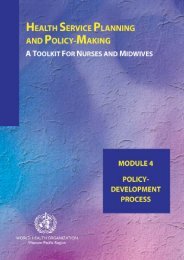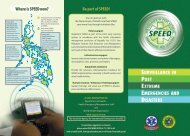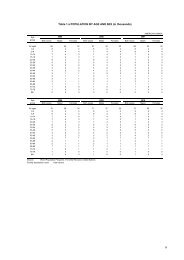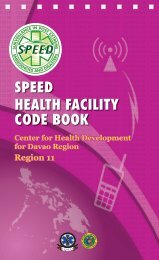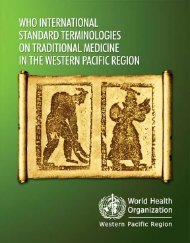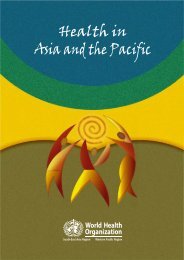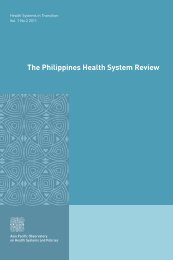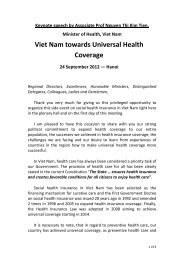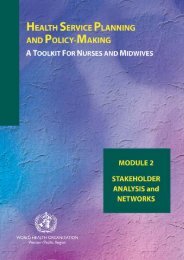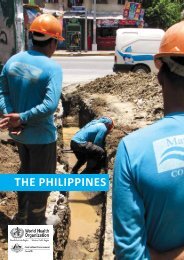Untitled - DOH
Untitled - DOH
Untitled - DOH
- No tags were found...
You also want an ePaper? Increase the reach of your titles
YUMPU automatically turns print PDFs into web optimized ePapers that Google loves.
National Framework Strategy on Climate Change Policy 2010-2022 Handbook2.3 The Philippines, as a State Party to the United Nations Framework Convention on ClimateChange (UNFCCC), is committed to its core principle of common but differentiatedresponsibilities and respective capabilities.2.4 The precautionary principle guides the State’s climate change framework and shall takeprecautionary measures to anticipate, prevent or minimize the causes of climate change and itsadverse effects. Where there are threats of serious or irreversible damage, lack of full scientificcertainty should not be used as a reason for postponing such measures.2.5 The Framework is risk-based, and strategies/activities shall be formulated, with decisions madebased on the causes, magnitude and impacts of risks.2.6 Climate change knowledge is science-based, and shall draw from scientific contributions and bestpractices from communities taking into considerations local circumstances.2.7 The national priorities, and therefore, the pillars, of the National Framework Strategy on ClimateChange shall be adaptation and mitigation, with an emphasis on adaptation as the anchorstrategy. Whenever applicable, mitigation actions shall also be pursued as a function ofadaptation.2.8 Adaptation measures shall be based on equity, in accordance with common but differentiatedresponsibility; special attention must be given to ensure equal and equitable protection of thepoor, women, children and other vulnerable and disadvantaged sectors.2.9 Even with inadequate scientific information, anticipatory adaptation measures should beundertaken to prevent or minimize the causes and potential impacts of climate change, whenevernecessary.2.10 The Framework adopts the Philippine Agenda 21 for Sustainable Development, to fulfill humanneeds while maintaining the quality of the natural environment for current and future generations.2.11 The principle of complementation shall be observed to ensure that climate change initiatives byone sector do not restrict the adaptation of other sectors.2.12 The Framework recognizes the roles of agencies and their respective mandates as provided bylaw. The Framework also recognizes the principle of subsidiarity and the role of localgovernments as front-liners in addressing climate change.2.13 The Framework recognizes the value of forming multi-stakeholder participation and partnershipsin climate change initiatives, including with civil society, private sector and local governments, andespecially with indigenous peoples and other marginalized groups most vulnerable to climatechange impacts.2.14 Policy and incentive mechanisms to facilitate private sector participation in addressingadaptation and mitigation objectives shall be promoted and supported.3. FRAMEWORK CONTEXT3.1 This Framework takes into consideration and complies with the commitments of the Philippines inmultilateral environmental treaties, specifically the United Nations Framework Convention onClimate Change (UNFCCC).3.2 Addressing adaptation needs, capitalizing on mitigation potential and complying with UNFCCCobligations require systematic analysis, strategic planning and determined implementation.Section 11 of Republic Act No. 9729 mandates the Climate Change Commission (CCC) toformulate the Framework Strategy and Program on Climate Change six (6) months from theeffectivity of the Law. This Framework was developed based on the country’s climate changevulnerabilities, adaptation needs and mitigation potential, all in accordance with internationalagreements.13.3 The Intergovernmental Panel on Climate Change (IPCC), in its Fourth Assessment Report (AR4),concluded that anthropogenic warming over the last three decades has affected many physicaland biological systems all over the world. As a result, the resilience of many ecosystems is likelyto be breached this century. As mean global temperatures rise and climate change impactsintensify, the Philippines will encounter serious stresses in food production, health, and economicsecurity.________________________1 Refers to the obligations of the Philippines under the UNFCCC and other related internationalagreements3030


